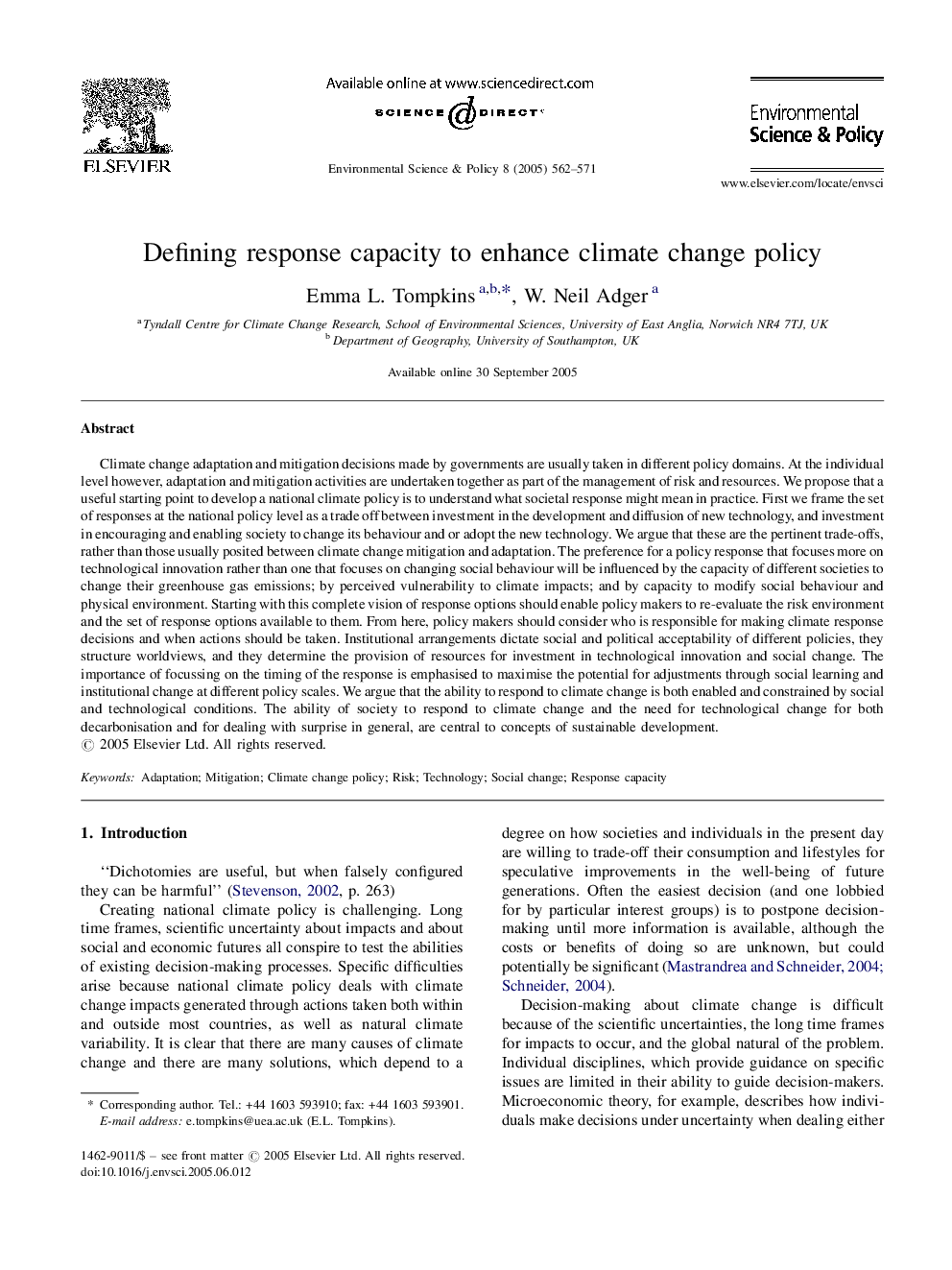| کد مقاله | کد نشریه | سال انتشار | مقاله انگلیسی | نسخه تمام متن |
|---|---|---|---|---|
| 10504687 | 946772 | 2005 | 10 صفحه PDF | دانلود رایگان |
عنوان انگلیسی مقاله ISI
Defining response capacity to enhance climate change policy
دانلود مقاله + سفارش ترجمه
دانلود مقاله ISI انگلیسی
رایگان برای ایرانیان
کلمات کلیدی
موضوعات مرتبط
مهندسی و علوم پایه
مهندسی انرژی
انرژی های تجدید پذیر، توسعه پایدار و محیط زیست
پیش نمایش صفحه اول مقاله

چکیده انگلیسی
Climate change adaptation and mitigation decisions made by governments are usually taken in different policy domains. At the individual level however, adaptation and mitigation activities are undertaken together as part of the management of risk and resources. We propose that a useful starting point to develop a national climate policy is to understand what societal response might mean in practice. First we frame the set of responses at the national policy level as a trade off between investment in the development and diffusion of new technology, and investment in encouraging and enabling society to change its behaviour and or adopt the new technology. We argue that these are the pertinent trade-offs, rather than those usually posited between climate change mitigation and adaptation. The preference for a policy response that focuses more on technological innovation rather than one that focuses on changing social behaviour will be influenced by the capacity of different societies to change their greenhouse gas emissions; by perceived vulnerability to climate impacts; and by capacity to modify social behaviour and physical environment. Starting with this complete vision of response options should enable policy makers to re-evaluate the risk environment and the set of response options available to them. From here, policy makers should consider who is responsible for making climate response decisions and when actions should be taken. Institutional arrangements dictate social and political acceptability of different policies, they structure worldviews, and they determine the provision of resources for investment in technological innovation and social change. The importance of focussing on the timing of the response is emphasised to maximise the potential for adjustments through social learning and institutional change at different policy scales. We argue that the ability to respond to climate change is both enabled and constrained by social and technological conditions. The ability of society to respond to climate change and the need for technological change for both decarbonisation and for dealing with surprise in general, are central to concepts of sustainable development.
ناشر
Database: Elsevier - ScienceDirect (ساینس دایرکت)
Journal: Environmental Science & Policy - Volume 8, Issue 6, December 2005, Pages 562-571
Journal: Environmental Science & Policy - Volume 8, Issue 6, December 2005, Pages 562-571
نویسندگان
Emma L. Tompkins, W. Neil Adger,